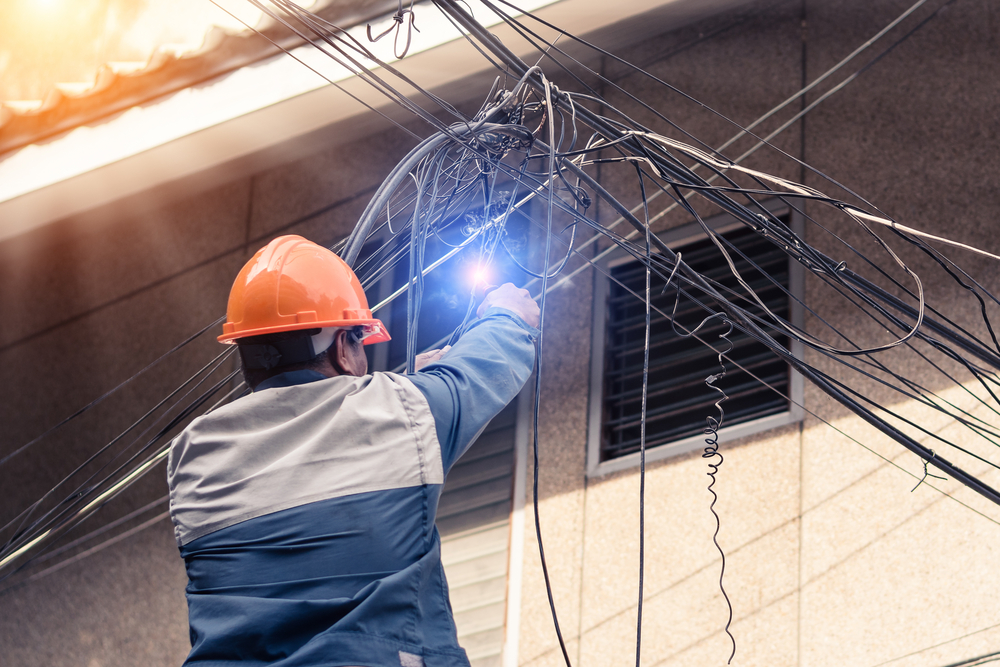Electrocution is one of the leading causes of fatality and serious injury in the construction industry. In fact, it has been listed by the U.S. Occupational Safety and Health Administration (OSHA) as being among the industry’s “Fatal Four.” Although electrical accidents can have many causes, proper safety measures can prevent most of them. If you were injured or lost a loved one due to an electrical accident on a construction site, you may be entitled to recover monetary compensation.
Causes of Electrical Accidents and Injuries
Construction sites are inherently hazardous locations. However, they become even more dangerous when safety protocols are not followed in connection with electricity and electrical equipment. Some of the most common safety risks on job sites stem from issues with power lines, extension cords, and electrical machinery.
Critically, any electrical equipment should be frequently inspected and well-maintained to avoid accidents and serious injuries. Common causes of electrical accidents on construction sites can include the following:
- Contact with live wires
- Fallen power lines
- Contact with overhead power lines
- Defective equipment
- Improperly grounded wires
- Unsafe tools
- Contact with lighting equipment
- Failure to provide ground-fault protection
Coming into contact with only a small fraction of one amp may be enough to cause a fatal accident. But even if an electrical accident doesn’t result in fatality, a worker can still suffer electrical shock, electrical burns, organ injuries, brain damage, and secondary injuries arising from a fall. The type of electrical injuries and the extent of them can depend upon a number of factors, including the duration of exposure to the current, the voltage of the current, and how much current flows through the body.
Compensation for Construction Site Electrical Accidents
If you suffered injuries or lost a family member in an electrical accident on a construction site, you may be eligible to receive Workers’ Compensation. Unfortunately, these benefits are usually not enough to cover the full extent of a worker’s losses. In such cases, you may be able to file a personal injury lawsuit to recover your economic and non-economic damages.
Although a worker is barred from suing an employer for work-related electrical injuries due to New York’s Workers’ Compensation laws, a third party may be held accountable for their negligence or carelessness in a personal injury action. Potentially liable parties can include contractors, subcontractors, property owners, and engineers. A manufacturer may also be held liable if defective equipment caused the electrical accident.
By commencing a personal injury action, you may be entitled to compensation for your economic losses incurred as a result of the accident, including your unreimbursed medical expenses, lost wages, and out-of-pocket expenses. You may also be eligible to receive monetary recovery for the pain and suffering you experienced due to your accident-related injuries.
Additionally, the family of a construction worker who was a victim of electrocution may be entitled to recover monetary damages by filing a wrongful death action. In such cases, the victim’s family members may be awarded compensation for the lost wages their loved one would have brought home, reimbursement for medical expenses, and funeral costs. They might also be compensated for loss of parental guidance, inheritance, and services the victim provided in the household.
Contact an Experienced New York Personal Injury Attorney
If you sustained injuries or lost a loved one in an electrical accident on a construction site, it’s essential to have a personal injury attorney on your side to recover the compensation you deserve. The Dearie Law Firm, P.C. has been advocating for the rights of injured construction workers for more than thirty years and has a long-standing reputation for obtaining positive results in clients’ cases.
The Dearie Law Firm, P.C. has convenient office locations in Manhattan, Brooklyn, and the Bronx, as well as mobile locations serving Brooklyn, Queens, Manhattan, the Bronx, Staten Island, Westchester County, Rockland County, Nassau County, and Suffolk County. Contact us today for a consultation.

